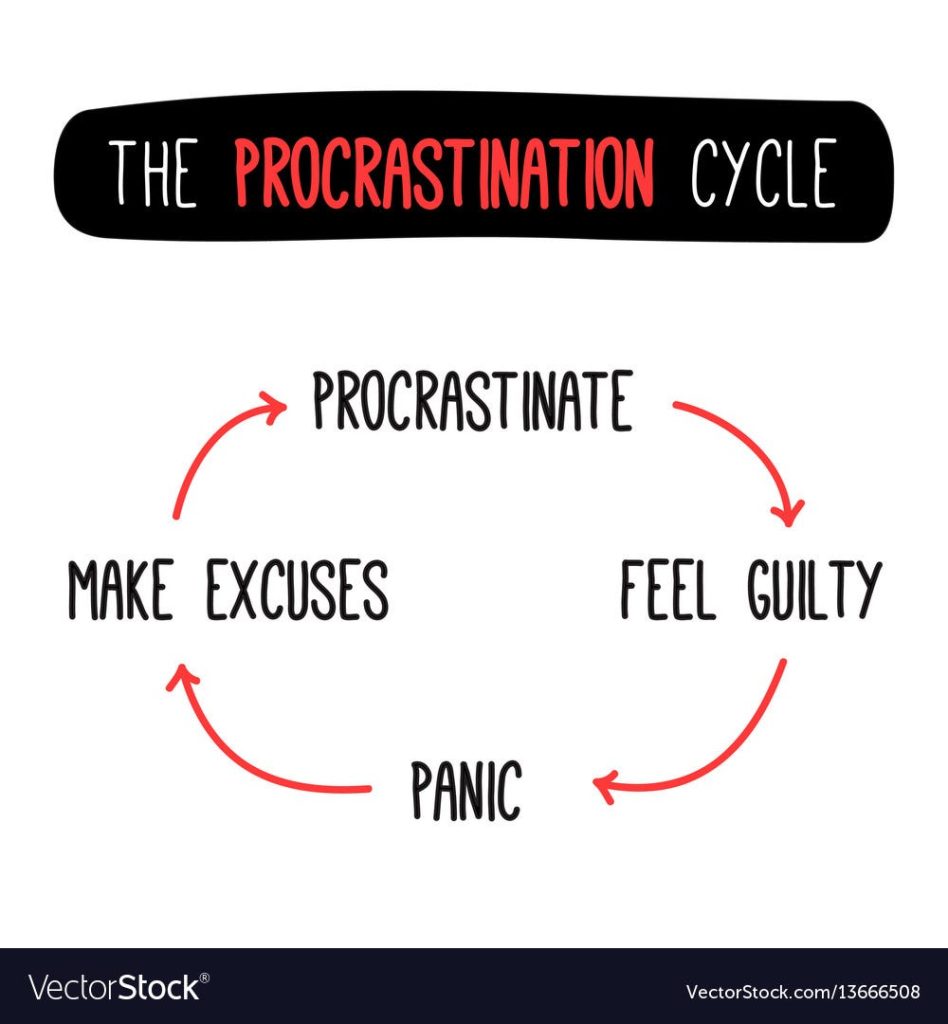
Procrastination: the perennial nemesis of productivity. Most of us have experienced its grip at some point, delaying tasks until the last possible moment or indefinitely putting off important endeavors. But why do we procrastinate, and what psychological mechanisms underlie this common behavior?
The Temptation of Instant Gratification
Procrastination often stems from a fundamental human tendency to prioritize immediate rewards over long-term benefits. When faced with a task that requires effort or lacks immediate enjoyment, we may succumb to the allure of more instantly rewarding activities, such as scrolling through social media, watching videos, or engaging in other forms of entertainment.
Psychologically, this behavior can be understood through the concept of temporal discounting, where we place less value on future rewards compared to immediate ones. In the moment, the prospect of completing a challenging task may seem less appealing than indulging in activities that provide instant gratification.
Fear of Failure and Perfectionism
Another common psychological factor contributing to procrastination is the fear of failure. Perfectionism, in particular, can be a significant barrier to getting started on tasks. When individuals hold excessively high standards for their performance, they may procrastinate out of fear that they won’t meet those standards, leading to feelings of inadequacy or criticism from others.
Procrastination becomes a way to avoid confronting these fears head-on. By delaying tasks, individuals temporarily shield themselves from the possibility of failure or criticism, albeit at the cost of increased stress and anxiety as deadlines loom closer.
The Paradox of Choice
In today’s world, we’re bombarded with an abundance of choices and opportunities, which can paradoxically lead to decision paralysis and procrastination. When faced with a multitude of options, individuals may struggle to prioritize tasks effectively, leading to procrastination as they grapple with the overwhelming array of possibilities.
Psychological research suggests that having too many choices can lead to decision fatigue, where cognitive resources become depleted from evaluating options, making it harder to initiate action. As a result, individuals may procrastinate as a way to avoid making difficult decisions or committing to a particular course of action.
Temporal Motivational Theory
Temporal Motivational Theory (TMT) provides a framework for understanding procrastination based on the interplay between timing and motivation. According to TMT, individuals’ motivation to engage in a task is influenced by two factors: the perceived value of the task and the perceived delay until its completion.
When the value of a task is high and the delay is low, motivation is typically high, leading to prompt action. However, when the value is low or the delay is perceived as long, motivation decreases, increasing the likelihood of procrastination.
TMT highlights the importance of managing perceptions of task value and delay to mitigate procrastination. Breaking tasks down into smaller, more manageable components can increase their perceived value, while setting specific deadlines or using time management techniques can reduce the perceived delay, thereby boosting motivation and reducing procrastination.
Procrastination as a Coping Mechanism
Beyond its role in time management and motivation, procrastination can also serve as a coping mechanism for dealing with negative emotions or stress. When faced with tasks that evoke feelings of anxiety, boredom, or overwhelm, individuals may procrastinate as a way to temporarily alleviate these unpleasant emotions.
However, procrastination often exacerbates these negative emotions in the long run, creating a vicious cycle of avoidance and increased stress. To break this cycle, it’s important to develop healthier coping strategies for managing emotions and addressing underlying sources of stress.
In conclusion, procrastination is a complex phenomenon influenced by various psychological factors, including the temptation of instant gratification, fear of failure, decision paralysis, and coping mechanisms for dealing with negative emotions. By understanding these underlying mechanisms, individuals can take proactive steps to overcome procrastination and enhance their productivity and well-being.